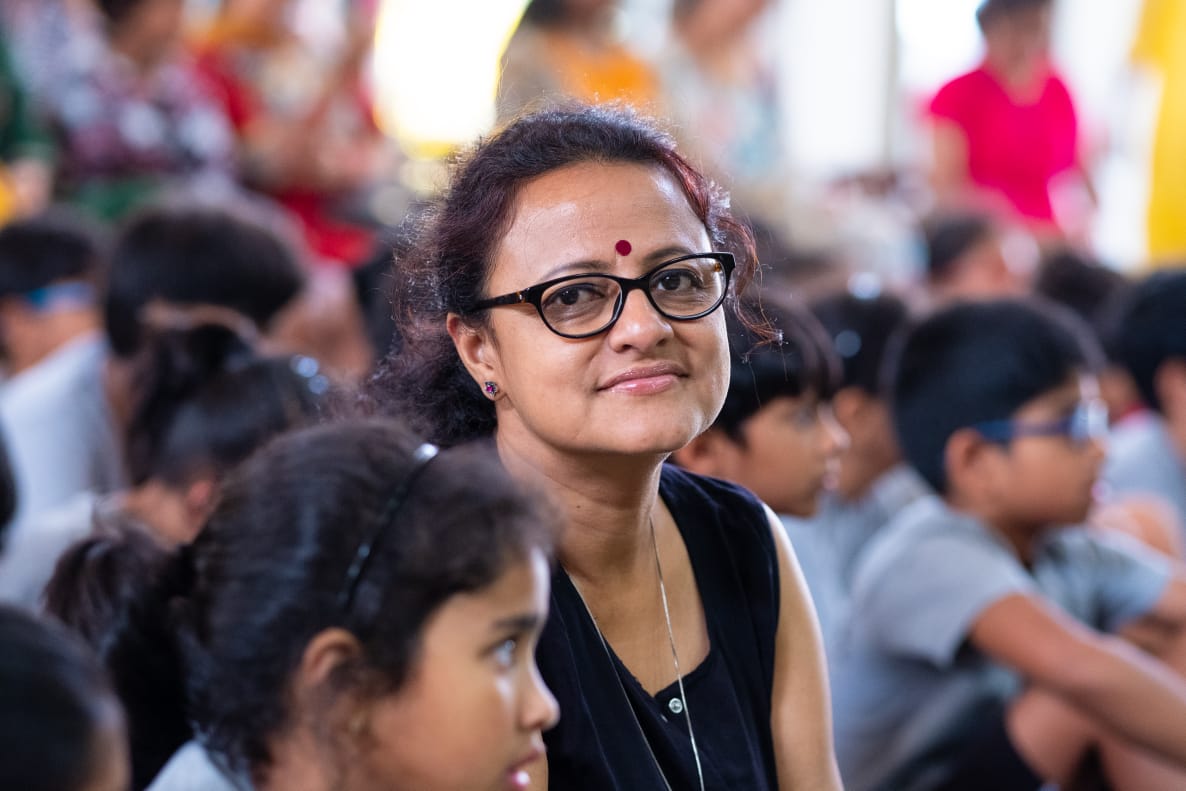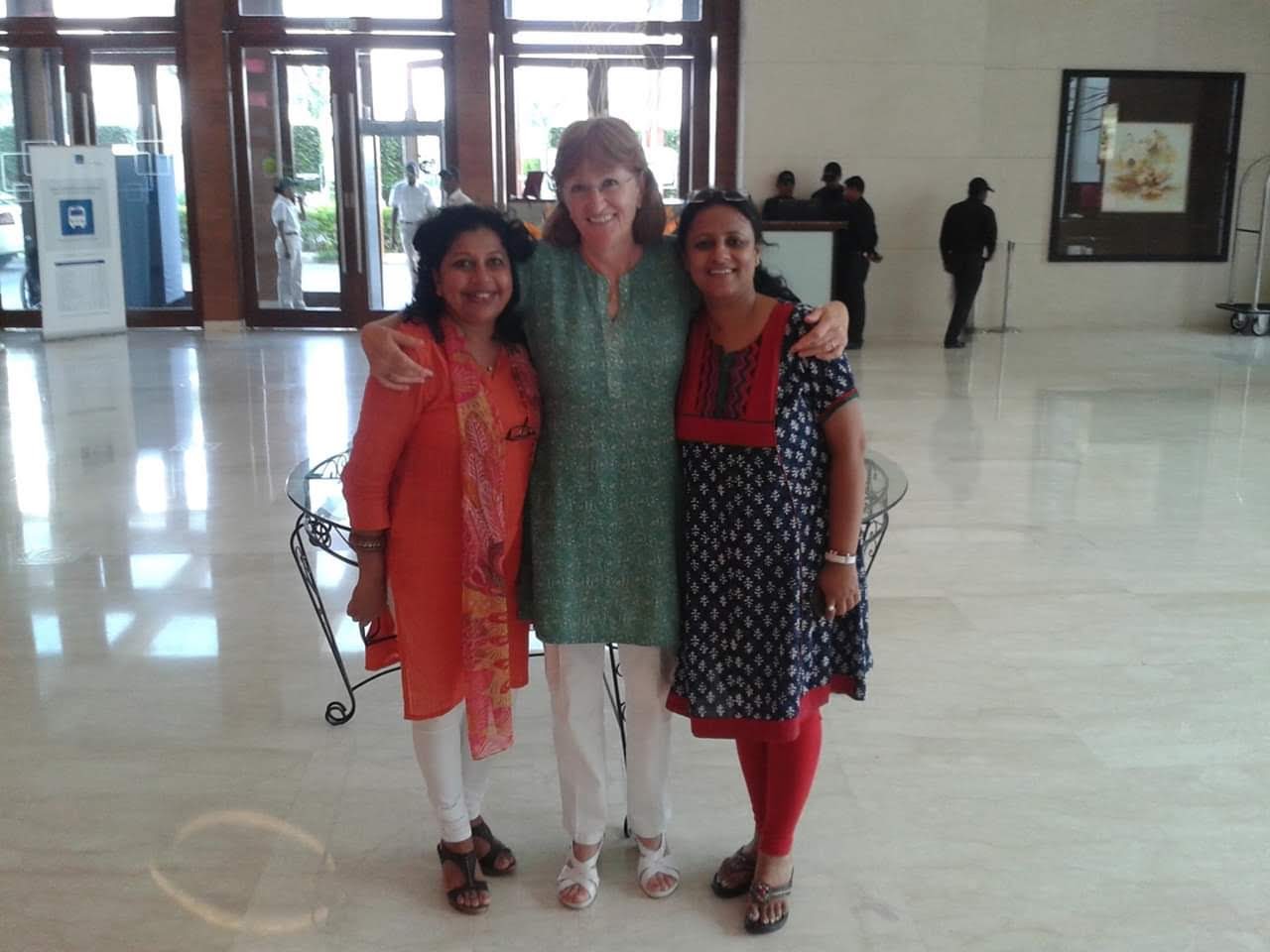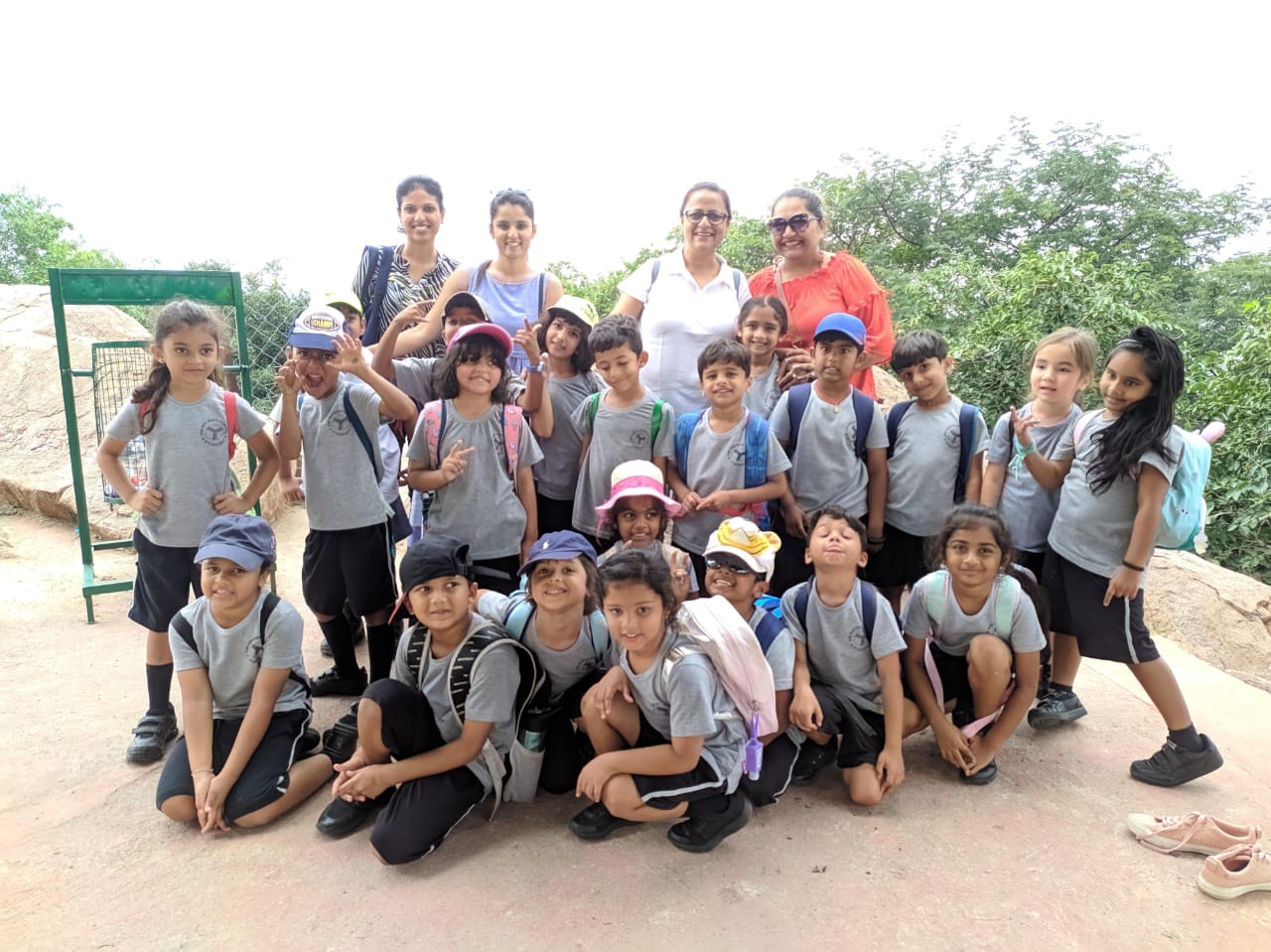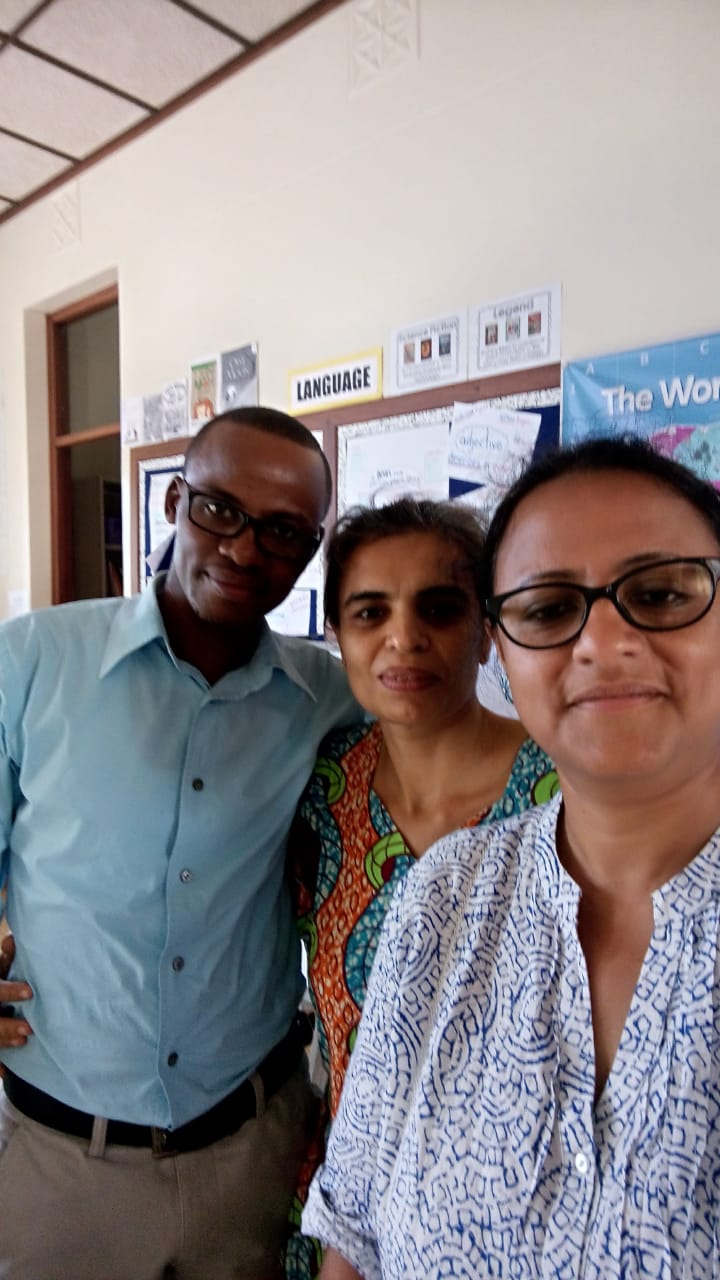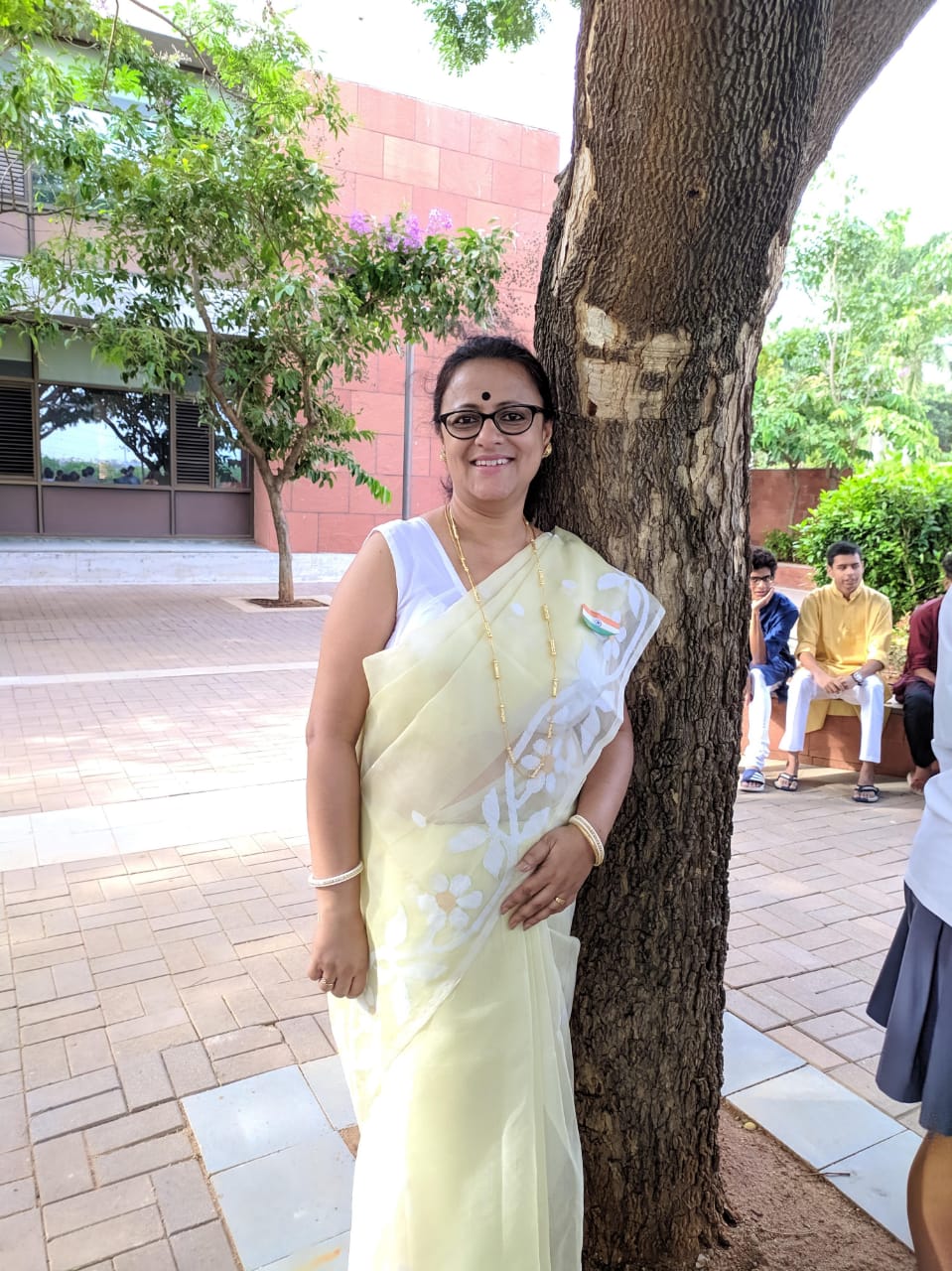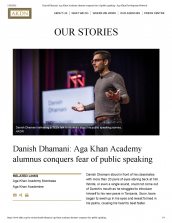Tanya Lalani, a Diploma Programme 2 student, speaks to Bhaavik Blessed Mamidala about her fond memories at the Aga Khan Academy Hyderabad o
University Acceptances 2014
Members of the first graduating class of the Aga Khan Academy, Hyderabad were accepted by the following universities in 2014:
Zia Chapman: Video Spotlight
Newsletter readers, click here to continue reading the newsletter.
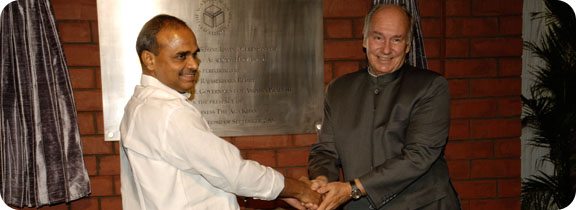
History
In 2000, His Highness the Aga Khan initiated a programme to establish an integrated network of schools, known as the Aga Khan Academies. The aim of the Academies is to provide education to deserving students at an international standard of excellence.
The Aga Khan Academies are part of the Aga Khan Development Network (AKDN), which has been involved in education in developing countries for decades. AKDN agencies currently run more than 240 schools and educational programmes ranging from early childhood through to post-graduate education.
In 2003 the first Academy was established in the Kizingo area of Mombasa, Kenya. A facility inspired by Swahili architecture, the Aga Khan Academy Mombasa is a state-of-the-art learning institution. It is recognised as an International Baccalaureate World School. The Aga Khan Academy Hyderabad was the second to open in 2011, and the third opened in 2013 in Maputo, Mozambique.
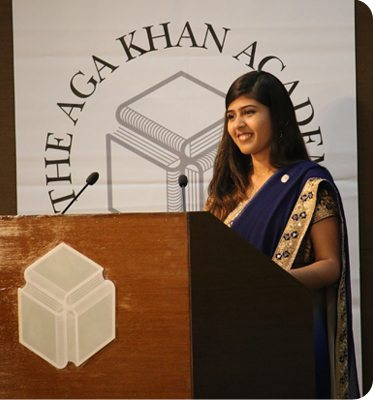 Establishment of the Aga Khan Academy Hyderabad
Establishment of the Aga Khan Academy Hyderabad
Construction of the Aga Khan Academy in Hyderabad began in 2006. The first intake of students was in August 2011 for the Junior School and 2012 for the Senior School, including the residential programme. The Academy has been accredited as an International Baccalaureate World School for the Primary Years, Middle Years and Diploma Programmes. The first class of the Senior School’s Diploma Programme graduated in 2014.
The Academy's Professional Development Centre (PDC) began operating in July 2010, prior to the opening of the school. The first programme offered by the PDC was a series on Professional Learning for Educators. These are collaborative courses designed by the Aga Khan Academies with input from government and educational experts. Their aim is to improve the education of both students and teachers within the region.
A global learning community
As further Aga Khan Academies are established, the vision is for them to become an interconnected network of schools that form a global learning community. The work of the Academies is also enhanced through partnerships with other educational institutions and the agencies of the Aga Khan Development Network.
Laboni Banerjee: cultivating community wherever she goes
Laboni was immediately attracted to AKA Hyderabad because of the vision and mission of His Highness the Aga Khan for the Aga Khan Academies. She found the values of the Academy to be more aligned with her own ethos than the school she was previously working at before joining the Academy.
“Over the course of 10 years at the Academy, I have found myself a part of a vibrant and caring community,” Laboni said.
When joining the Academy in 2010, Laboni recalls it being a much smaller school then, especially the International Baccalaureate (IB) Primary Years Programme (PYP). There were only seven PYP teachers and the Junior School principal at the time, Diana Smith who started the PYP at the Academy, along with Sreelatha Kumar, who was the PYP coordinator at the time and is now the Junior School principal. AKA Hyderabad received the Diploma Programme and Middle Years Programme authorisation in 2012 and 2013, respectively. The latter year is when Laboni remembers seeing notable growth in both students and faculty at the Academy.“Early years in the PYP were busy,” Laboni said. “During this time, I was also focusing on identifying myself as a member of the PYP team and growing with the school.
Over the course of her time at AKA Hyderabad, Laboni has taken on various roles. Along with being a Grade 3 teacher, Laboni took a role in the PYP reading and writing assessment in which she collected evidence and data. Laboni also helped with the Admissions Department and was responsible for checking the vocabulary of students applying to the Academy. Reflecting back, Laboni said she greatly appreciated this role because it allowed her to build a special relationship with parents and students from the very beginning of their Academy journey.
“While working with the Admissions Department I valued meeting a large number of people who were enthusiastic and eager to learn more about the PYP in the early years.”
From 2012–2014 Laboni helped with AKA Hyderabad’s Outreach Teacher Training programme, which is a core part of Academies’ Professional Development Centre (PDC) that trains local teachers around the community in various subject areas and enhances their pedagogical skills.
A few years ago, Laboni also had the opportunity to travel to the Aga Khan Academy in Mombasa, Kenya where she truly began to appreciate the pluralistic approach to education and diverse cultures and backgrounds the Academies values and emphasises. During her time in Mombasa, Laboni met Titus Mutemi, who was a recent graduate of the Teacher Preparation Programme – a programme provided by the Academies that trains teachers to become IB educators in their communities – and is now the PYP coordinator at AKA Mombasa. Laboni recalls Titus being filled with great enthusiasm and eagerness as he wanted to know everything about her class including the assessment techniques, books she has students read, any material created for the class and much more.
“Partnering with Laboni was such an enriching experience,” Titus said. “Her flexibility and open-mindedness made our collaboration easier and enjoyable. Years have gone by and yet her enthusiasm and unique way of engaging with the young learners is still memorable.”When AKA Hyderabad transitioned to online learning in March 2020 due to COVID-19, Laboni said there were a few challenges she faced but was able to overcome due to the support she received from the Academy.
“In the PYP we have always used technology as a learning and teaching tool. However, when we shifted to complete online teaching, building the bridge with new students I had never met before was the biggest challenge. With physical teaching, I was able to bond with my students on a personal level, but this changed with distance learning.
However, the Academy always supported me and made me feel comfortable working on a virtual platform with a new group of learners. Assigning me to be a part of various online professional development sessions was immense support as it helped me develop my understanding of the application of various teaching tools. The virtual learning and teaching also enabled me to look at my own teaching philosophy through a different lens and reimagine my teaching strategies. Now, it is my greatest joy and top priority to see my students online and have personal conversations with them.”Laboni said she cannot imagine her future without the Academy being a part of it. She is always involving herself in different roles throughout the Academy in order to connect with more students beyond the PYP and see how they turn their passions into reality. Laboni also said she is fortunate to be a part of a community that is continuously supportive and where she is encouraged to grow each day as an educator and individual.
“The greatest part about delivering education at the Academy and being a part of its community is that every day is a learning experience for me. I am always excited to see my students become open-minded young adults, chasing their greatest passions in life and thinking about how to make the world a better place for all.”
Welcome to the Aga Khan Academy Hyderabad
Multimedia
A better world through education: The Aga Khan Academies
Recent News
Alaina Hirani, a Diploma Programme 2 student, speaks to Bhaavik Blessed Mamidala about how the Aga Khan Academy Hyderabad nurtured the righteous aspirations in her.
Zara Amjad, a Diploma Programme 2 student, speaks to Shritha Sattaru about how the Aga Khan Academy Hyderabad helped her evolve as a confident leader over the past 12 years.
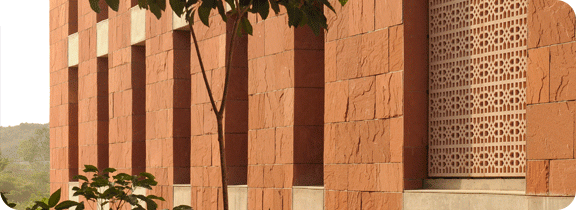
Quick Facts About the Academy
The Aga Khan Academy Hyderabad (established 2011)
Location: South of the city of Hyderabad, near the Rajiv Gandhi International Airport
Campus size: 100 acres of land allocated by the state government
Campus design and construction:
- total built area: approximately 500,000 square feet
- master facilities planners for the Academies: Sasaki Associates Inc. of Boston, USA
- campus design: award-winning architect Bimal Patel of HCP in Ahmedabad, India
- campus construction: Shahpoorji Pallonji
Curriculum
The Aga Khan Academy Hyderabad is an International Baccalaureate (IB) World School
IB programmes:
- Primary Years Programme: grades 1–5;
- Middle Years Programme: grades 6–10;
- Diploma Programme: grades 11–12
Aga Khan Curricular Strands, implemented across the curriculum:
Ethics, Pluralism, Cultures (with an emphasis on Muslim civlisations), Governance and Civil Society, and Economics for Development
Staff and students
Faculty numbers: 8 senior management, 63 Senior School faculty, 19 Junior School faculty, 7 working in both Senior & Junior Schools, 42 administrative staff
Number of students currently enrolled: 632 day and residential students in total: 140 day students in the Junior School; 492 students in the Senior School, with 245 in residence
Numbers of students and teachers at full capacity: 750 students and 90 teachers, with over 40% of students receiving some form of financial aid
First IB Diploma Programme graduating class: 2014
Residential students
Number of residential students: 245 currently, with full capacity of 300 students
Number of students per room: Between 2 and 4, with second year Diploma Programme students in single/double rooms
Residential facilities: Student lounge with multimedia and entertainment equipment, study areas, laundry facilities, dining hall
Campus facilities
Sports facilities: 25-metre swimming pool, diving pool, gym, two regulation-sized basketball courts, three cricket pitches with net practice facilities, two tennis courts, four squash courts, athletics track, junior play area, hockey field, training field, 2.5 km cross-country track
Arts facilities: Rooms for fine arts, music, dance; individual music practice booths; music recording area; amphitheatre performance space
Academic areas: Junior School classrooms, Senior School classrooms, science and computer laboratories, library and resource centre, arts facilities, music and dance studios
Residential buildings: 6 residential blocks: 3 male and 3 female; 6 dorm parent apartments in each block. Each block has a central atrium, lounge area, patio and laundry facilities.
Health and Wellness Centre: 12 beds and a full-time, qualified nurse
Professional Development Centre
The Aga Khan Academy Hyderabad is home to a Professional Development Centre for the advancement of teachers. The primary objective of this centre is to provide professional development that will benefit the wider school system in India.
Programming began in June 2010 with a Professional Learning for Educators Series for teachers in local government, independent and not-for profit schools.
The Aga Khan Academies network
18 Academies are planned in Africa, South and Central Asia, and the Middle East.
3 Academies are currently operating: Mombasa, Kenya (opened 2003); Hyderabad, India (opened 2011); and Maputo, Mozambique (opened 2013).
When complete, the network will represent 2,000 teachers and 14,000 students (boys and girls), with 1,400 graduates annually.
Institutional partnerships include:
Agencies of the Aga Khan Development Network; the International Baccalaureate, universities including the University of British Columbia, Concordia University, Ryerson University, University of California - Los Angeles, California State University - Northridge
Government partnerships include:
The Province of Ontario, Canada; the Ministry of Education, Science and Technology, Kenya; the Ministry of Education and Human Development, Mozambique; the French Development Agency (AFD); the French Mozambican Cultural Centre (CCFM - Centro Cultural Franco-Mozambicano); the Department of School Education, Telangana, India
Download the Quick Facts sheet here. ![]() AKA-Hyderabad-Quick-Facts.pdf
AKA-Hyderabad-Quick-Facts.pdf
